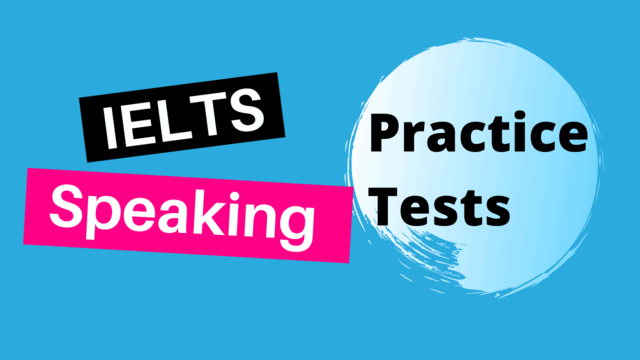The IELTS Speaking test assesses your ability to communicate effectively in English across three sections: Part 1 (Introduction and Interview), Part 2 (Long Turn), and Part 3 (Discussion). Business is a common topic that covers a wide range of subtopics, from personal experiences to modern business practices, and the influence of technology, especially the Internet, on business. This sample test on Business includes 10 questions and answers, plus tips to help you achieve a high score on the IELTS Speaking test.

Part 1: Introduction and Interview
- Question: Do you have an interest in business? Why or why not?
- Answer: Yes, I’m interested in business because it’s exciting to see how companies grow and adapt to market changes. I think business impacts nearly every aspect of society, from job creation to innovation.
- Question: What kind of businesses are popular in your country?
- Answer: In my country, small and medium-sized enterprises (SMEs) are quite popular, especially in areas like retail, technology, and hospitality. Additionally, online businesses have become very popular with the rise of e-commerce.
- Question: How has the Internet changed the way people do business?
- Answer: The Internet has transformed business by making it possible to reach customers globally and operate online 24/7. E-commerce, digital marketing, and virtual meetings are now common practices, making business more efficient and accessible.
- Question: Do you think young people should be encouraged to start their own businesses?
- Answer: Yes, I believe young people should be encouraged because running a business teaches valuable skills like responsibility, decision-making, and resilience. It also provides a sense of independence and potential financial growth.
Part 2: Long Turn
- Question: Describe a successful business you know about. You should say:
- what the business is
- how you know about it
- why you think it is successful
- and explain how it has impacted people’s lives.
- Answer: A successful business I admire is Tesla, the electric car company. I learned about Tesla through news articles and social media. I think it’s successful because it has revolutionized the automobile industry with sustainable, high-performance electric vehicles. Tesla has impacted people’s lives by promoting eco-friendly transportation and advancing clean energy technology, which is crucial for the environment.
Part 3: Discussion
- Question: Why do some businesses succeed while others fail?
- Answer: Success in business often depends on factors like having a solid business plan, understanding customer needs, and adapting to market trends. Companies that fail usually lack a clear strategy, fail to innovate, or don’t effectively manage their finances and resources.
- Question: How do you think the Internet will impact the future of business?
- Answer: The Internet will likely continue to drive business innovation. I think we’ll see more online-only businesses and an increase in AI and automation in business processes. Also, the Internet will keep expanding markets, allowing even small businesses to reach global audiences.
- Question: Do you think business ethics are important? Why or why not?
- Answer: Yes, business ethics are crucial because they ensure fair practices and build trust with customers and employees. Ethical businesses tend to have better reputations and long-term success because they prioritize honesty, transparency, and responsibility.
- Question: How important is customer satisfaction in business?
- Answer: Customer satisfaction is vital in business because happy customers are more likely to return and recommend the company to others. Satisfied customers also contribute to positive reviews and brand loyalty, which are key for growth and profitability.
- Question: How has remote work changed the business environment?
- Answer: Remote work has made businesses more flexible and has allowed people to work from anywhere. This has reduced overhead costs for companies and increased job satisfaction for employees. However, it has also posed challenges in terms of maintaining team collaboration and productivity.
Tips for Scoring High in IELTS Speaking
- Use Clear Pronunciation and Appropriate Intonation
Speak clearly, and use intonation to emphasize key ideas or points of enthusiasm. A natural, expressive tone will make your answers sound more engaging and conversational. - Incorporate Business Vocabulary
Use business-specific vocabulary to demonstrate your knowledge of the topic. Words like “entrepreneurship,” “start-up,” “e-commerce,” “revenue,” “innovation,” and “customer loyalty” show a strong command of vocabulary relevant to business. - Structure Your Responses Logically
Organize your responses by introducing the main point, adding examples or explanations, and concluding if necessary. This structure will make it easier for the examiner to follow your ideas and demonstrates coherence. - Showcase a Range of Grammar and Sentence Structures
Use a mix of sentence types, including complex sentences and conditionals, to show grammatical range. For example: “If businesses don’t adapt to changing technologies, they may struggle to survive.” - Speak Fluently and Keep Going
Try to maintain a steady pace and avoid long pauses. If you need a moment to think, use fillers like “That’s an interesting question” or “Let me think about that.” Practicing business-related topics can also help you stay confident and fluent.
By using these tips and preparing with sample questions on business topics, you can improve your speaking skills and feel more confident. Preparation is key to performing well in the IELTS Speaking test. Good luck!
